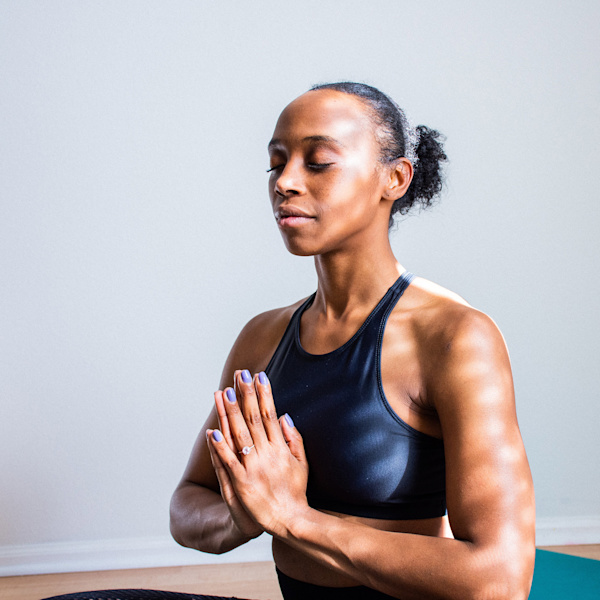
Deep breathing benefits you should know about
What are the benefits of deep breathing and how to practice it?
We all need to take a deep breath once in a while, but It would feel rather weird to do it all the time, right? Well, there is some truth in that, however that is only because we are not used to it. In fact, if you did it more often, you would soon forget that you breathe differently than before. You would feel OK with that, but… your body would notice the difference. Learn more about the advantages of deep breathing.
You would be surprised how correct breathing can affect your health. As we don’t have to focus on the breathing activity, we rarely think of how we should perform it in the right way. We start to take deep breaths when we feel out of breath, during training or if something is wrong, and we feel we can’t get enough air. Deep breathing has multiple advantages. We explain how to breathe better and why you should try it.
What is diaphragmatic breathing?
Deep breathing is sometimes also referred to as diaphragmatic breathing. It is a simple breathing exercise that can be performed to strengthen the diaphragm, relax, or get more oxygen into the body. It may also be referred to as abdominal breathing — due to the reaction of the diaphragm to a deep breath.
To take a deep breath, you should inhale through the nose and try to fill the lungs fully. You can put one hand on your belly and the other on the ribcage on the side of your chest. Filling lungs will cause the diaphragm to be pushed down to make more space, so you will feel like your belly is growing when you inhale. Apart from that, you will probably feel the ribs move. That's because the intercostal muscles between your ribs also expand to make space for the lungs that are being filled with air. This exercise itself is not difficult, but it may be easy to forget about deep breathing when performing some other activities. It is sometimes easier for men to perform it, as they breathe this way more naturally than women, but anyone can learn how to do it. Deep breathing has multiple benefits.
What are the benefits of deep breathing?
Deep breathing can improve both mental and physical health. Some clinics recommend breathing exercises for those who had COVID-19. More and more personal trainers pay attention to how their clients breathe during sessions. Slow, deep breathing is also a popular relaxation method. What are the actual benefits of deep breathing?
Reduced stress level
A correct breathing technique is an important part of meditation and yoga — both known for their calming influence on those who practice it. Now, when you get stressed or anxious, your brain releases cortisol (often called the “stress hormone”). Deep breathing makes your heart slow down a bit. A significant dose of oxygen is a signal for your brain to relax. Additionally, the endorphins are released, and you calm yourself. Deep breaths can help you control reactions to strong emotions, retain the ability to make logical decisions or think about solutions to a problem that worries you.
Increased energy
We all feel tired sometimes. Have you ever felt like you need to do something very important, but your eyelids get heavy, and you can’t think of anything but rest? Normally, we feel exhausted from time to time. Sometimes it’s for the best if you take a nap or take a day off. If you are determined to complete some task, and you feel like your energy escapes you, just open a window and take some deep breaths — more oxygen means more energy and more endorphins. It will wake you up and give you more energy to work for a while longer.
Better posture
You can call it a positive side effect of deep breathing. While you inhale correctly and your lungs fill fully, your diaphragm moves down and your torso straightens to make space for the lungs. Deep breathing is not so efficient while you are bent, and you are not opening your chest, so probably everyone who explains this exercise will put emphasis on the right posture.
Improved immunity
Well-developed immunity is another benefit of deep breathing. It works a bit like regular exercising to keep your body in shape. During exercises, people take deep, controlled breaths. The body gets a lot of oxygen and absorbs vitamins and nutrients more efficiently. A strong immune system can defend itself better. You don’t have to become an extremely sporty person to improve your immune system. Start by practicing deep breathing.
Detox the Body
Take a breath and exhale. Do you know what just happened? The air we breathe consists of various substances — oxygen constitutes only about 21%. At the same time, carbon dioxide moves from your blood to the lungs, and you can get rid of it while you exhale. This entire process is called gas exchange. By deep breathing, you are removing some toxins from your system.
Lower blood pressure
When you are taking slow, deep breaths, your parasympathetic nervous system gets activated. Your heart slows down, you are becoming more relaxed, and your blood pressure goes down. It also influences some other organs. Deep breathing makes them work more efficiently. For example, it can improve digestion. Performing deep breathing several times a day should significantly improve your condition and mood.
Lower pain sensitivity
Breathing exercises are recommended for those in pain. Not all experts agree, but numerous studies were focusing on breathing exercises' influence on pain sensitivity, and some researchers claim that they can help reduce chronic pain. Deep breathing releases more endorphins, so the pain will be reduced. It also helps regulate heart rate and blood pressure and partially weakens the brain’s response to the pain.
How can you learn to breathe better?
Of course, performing deep breathing will improve your health regardless of your habits, but keep in mind that you have just decided to do something good for your body and mind. Is there anything else influencing the way you might be doing deep breathing exercises? Think of some activities that can affect the way you breathe, like smoking, inhaling indoor or outdoor pollutants, etc.
Some activities like yoga, meditation or regular training (working out in the gym, running outside, or even stretching at home) can improve the way you breathe and feel. Think of your breath while you are doing exercises. You will notice that taking slow, deep breaths will make it easier to train and exercise, and the pain will be muted while stretching.
There are many methods of practicing deep breathing. You can watch some tutorials or read articles about breathing techniques to find out more. You can also stand in the relaxed pose and take a slow, deep breath through your nose. Feel the air going down through your chest until there is no space anymore to fill it with oxygen. You can place your hand on the stomach, to feel the diaphragm going down.
Even though breathing deeply is quite simple, it is also difficult in a way. Why is it so? We just keep forgetting about it. We know that while you are rushing to work and then from work to other responsibilities, you sometimes don’t even have a moment to think about yourself. That is why we keep on reminding you about breathing every second, minute, and hour of the day. We created a simple, but elegant wristwatch - Mudita Moment - so every time you check the time, you will think of taking a healthy breath. We engraved a simple, but important advice on the case back — Inhale. Exhale. Repeat. It will continue to remind you about deep breathing anywhere you go. You don’t need any special equipment, free time, or open space to do this exercise. Do it when you walk. Gain more energy by breathing during lunch break and repeat it just before going to bed at night.
“Breath is the link between mind and body.” (Dan Brule) — strengthen this connection every day. Be healthy and be happy.
If you'd like to learn more about deep, mindful breathing and why it matters please take a look at our page dedicated to the subject or read our recent blog post about the importance of breathing exercises.
If you’d like to read more about topics connected to this subject, please check out some of our other articles posted on our blog:
You might also like to join our FORUM Community where we discuss ideas and exchange information about all things connected to wellness and overall health & well-being.
Related stories

Digital Detox Resolutions: Break the Screen Cycle & Sleep Better
Improve your sleep in 2025 with Mudita & a digital detox. Unplug before bed, create a tech-free routine & enjoy restful nights with simple, mindful habits.

How to Sleep Better When Anxiety Keeps You Awake
Struggling to sleep with anxiety? Discover mindful tips, natural remedies & practical strategies to calm your mind, improve sleep quality & wake up refreshed.

Why a Mudita Alarm Clock Makes the Perfect Gift for Any Occasion
Find out why a Mudita alarm clock really IS the perfect gift for any occasion and any it fits the needs of even the most hard-to-please recipients.
If you'd like to receive the best stories from our blog, keep up to date with our progress and get notified about our product releases and special discounts.